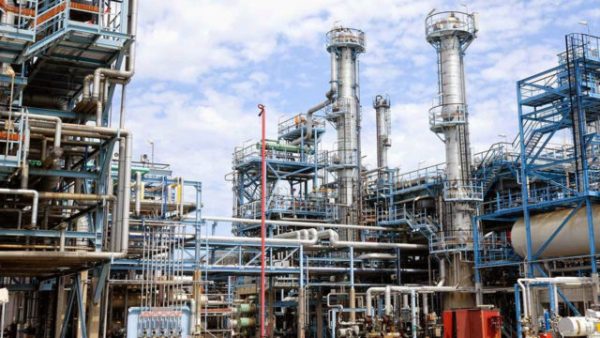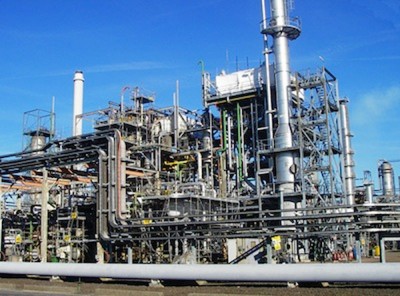Crude Oil Discovered In Borno
 After several months of exploration activities, Borno State has joined the league of oil-producing states in Nigeria, as the Federal Government has revealed that crude oil had been discovered in the state.
After several months of exploration activities, Borno State has joined the league of oil-producing states in Nigeria, as the Federal Government has revealed that crude oil had been discovered in the state.
Permanent Secretary of the Ministry of Petroleum Resources, Mrs. Jamila Shua’ra, disclosed this during the agreement signing ceremony for joint venture, JV, cash call exit and presentation of the petroleum sector score card in Abuja.
Shua’ra, however, failed to state the particular area in Borno State where oil was discovered and if the discovery was in commercial quantity.
She attributed the discovery of oil in Borno and Lagos states to the doggedness of the presentadministration.
In the scorecard presented to stakeholders, the ministry also noted that the introduction of PriceModulation Mechanism and Appropriate Pricing Framework had helped the Federal Governmentto save N1.4 trillion that would have been expended on subsidy payment between May and November.
Also, the ministry announced that the Department of Petroleum Resources, DPR, would in 2017 conduct bid rounds for open blocks and conclude the previously aborted marginal fields bid round to enhance the entry of new players, stimulate competition and generate revenue for the government.
Commenting on the scorecard, Vice President Yemi Osinbajo disclosed that the elimination of petroleum subsidy had removed a huge financial burden from the Federal Government.
According to him, the Federal Government had commenced moves to raise the country’s domestic refining capacity for petroleum products by repairing the existing refineries, licensing modular refineries and supporting the development of private-led refineries.
He said: “Recently, the Federal Executive Council approved new measures and strategies aimed at eliminating the burden of joint venture cash calls arrears and easing future payments in the upstream sector. The measures will boost additional investments and raise daily production levels to about 2.8 million barrels per day mbpd.”
Speaking in the same vein, Minister of State for Petroleum Resources, Mr. Ibe Kachikwu, stated that prior to the removal of fuel subsidy, the country was losing over N1.2 trillion annually, while the issue of fuel scarcity was rampant.
According to him, the elimination had led to a situation where refined petroleum consumption had gone down from an all-time high of 40 million litres a day to about 28 million litres a day.
Commenting on the JV cash call exit, Kachikwu expressed optimism that the arrangement would bring about a flurry of investments in the oil and gas industry, while it would also ensure that projects that were earlier abandoned by international oil companies were revived.The companies involved in the new cash call funding model are Shell, Nigerian Agip Oil Company, Chevron, Total and ExxonMobil.
Kachikwu challenged the oil companies to put their money where their mouth is and increasetheir investments in the country.
However, the Group Managing Director of the Nigerian National Petroleum Corporation, NNPC,Mr. Maikanti Baru, disclosed that the cash call exit arrangement would help address the longstanding issues of unpaid cash call arrears, underfunding of the joint venture and the burden of monthly cash call payments by the Federal Government.
Members of Petroleum and Natural Gas Senior Staff Association of Nigeria shut down business operations at the ExxonMobil office in Lagos on Thursday over the alleged sacking of 145 workers by the company’s management.
During a protest, the workers, who are members of staff of Mobil Producing Nigeria Unlimited, an affiliate of ExxonMobil, also said they had shut down activities at the Qua Iboe Terminal of the company in Akwa Ibom State.
The ExxonMobil Branch Vice-Chairman of PENGASSAN, Mr. Gbenga Ekundayo, said that the company refused to complete negotiations with the union before embarking on the disengagement of the workers.
According to him, the oil and gas company informed the union that it was disengaging some of the workers because of low performance.
He said the union had argued that the system of performance appraisal was flawed and unfair, saying it had only provided instances that would warrant punishment and sacking of the workers without making provisions for their promotion.
Ekundayo stated, “We commenced discussion with them on November 29, 2016. The company said it had too many people and needed to let some people go. And we told them that we were aware that for years it had been short-staffed.
“We have had one person doing the job of three people. We asked them why they wanted to send people away; they told us that some people were low performers. We had talked about that six years ago that the system used for performance appraisal had a lot of faults.
“Early this year, the management instituted a new system to make it a bit transparent. We have not assessed the improvement on the system to see how transparent it is. We can only assess the appraisal system around March and April next year. We asked why couldn’t we wait and see the effect of what they had done to see if it is fair, transparent and good for the people.”
When contacted, the Manager, Media and Communications, ExxonMobil, Mr. Oge Udeagha, said that special benefits were in place for the affected workers in line with the existing labour agreements.
He said the company would continue to engage its workforce in order to resolve the situation.
Udeagha said, “We invest for the long-term and are focused on maintaining a stable and well-developed workforce, and are committed to treating our employees with respect and in accordance with applicable rules and regulations.
“This is a limited programme that will impact a relatively small fraction of employees. Special benefits specifically introduced for this purpose will be paid to affected employees, consistent with existing labour agreements. The company is also arranging special programmes to support the transition from the company for those affected.”








